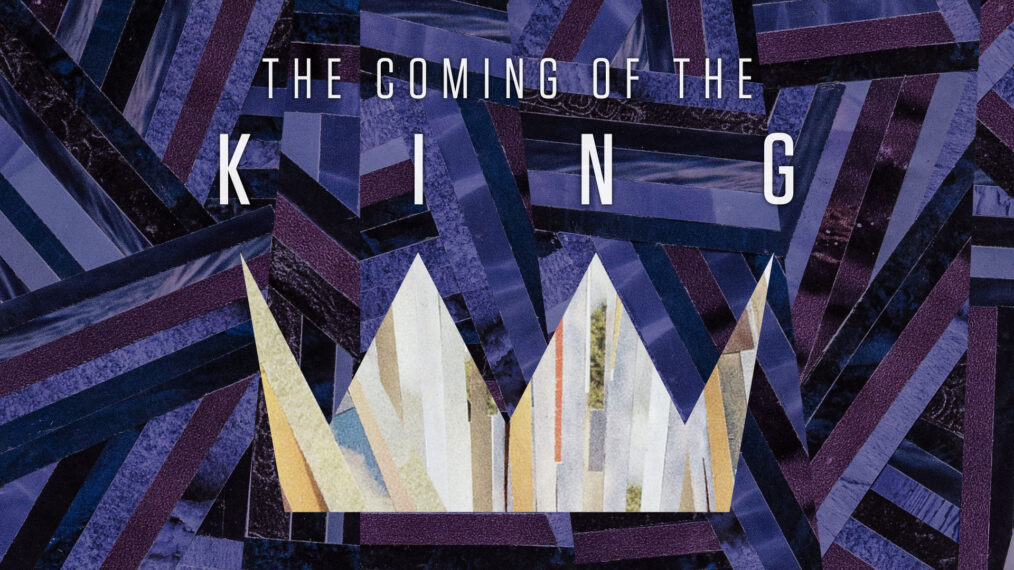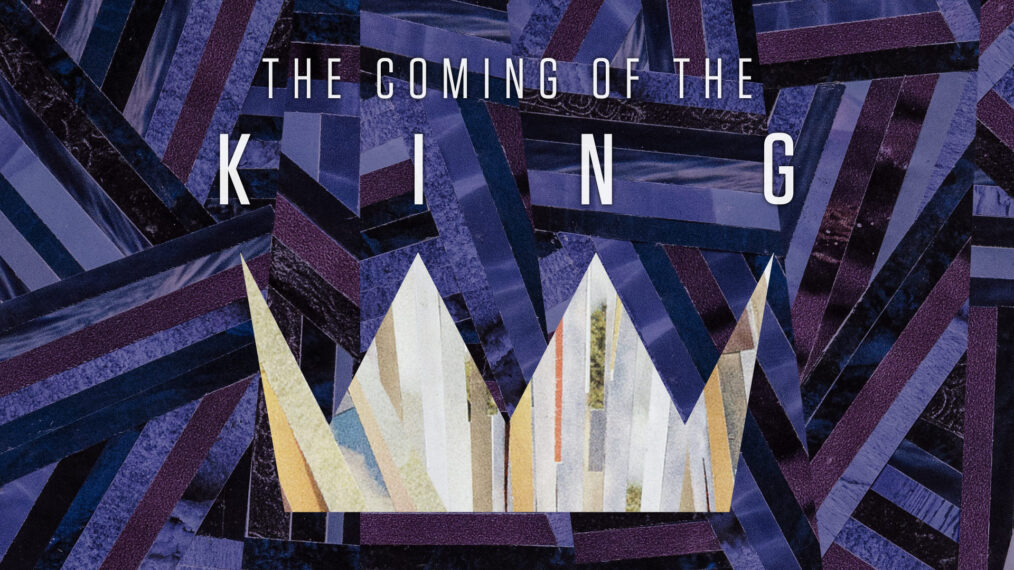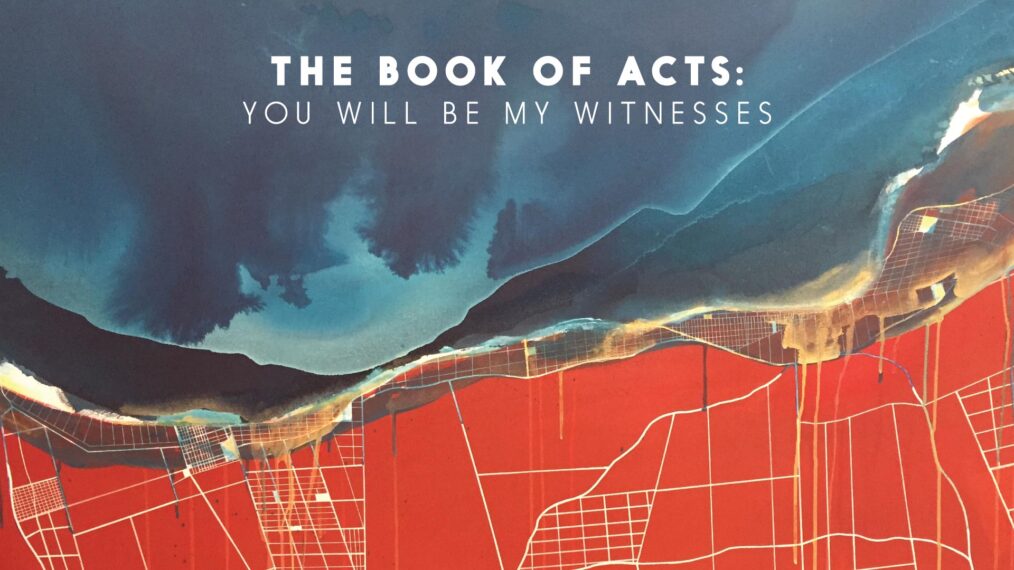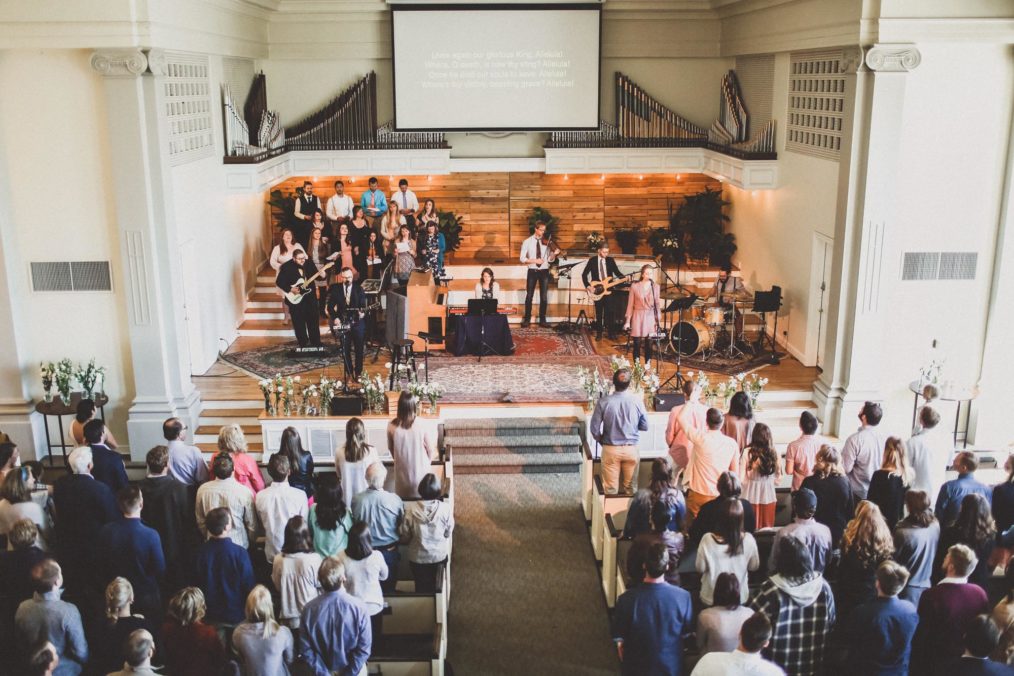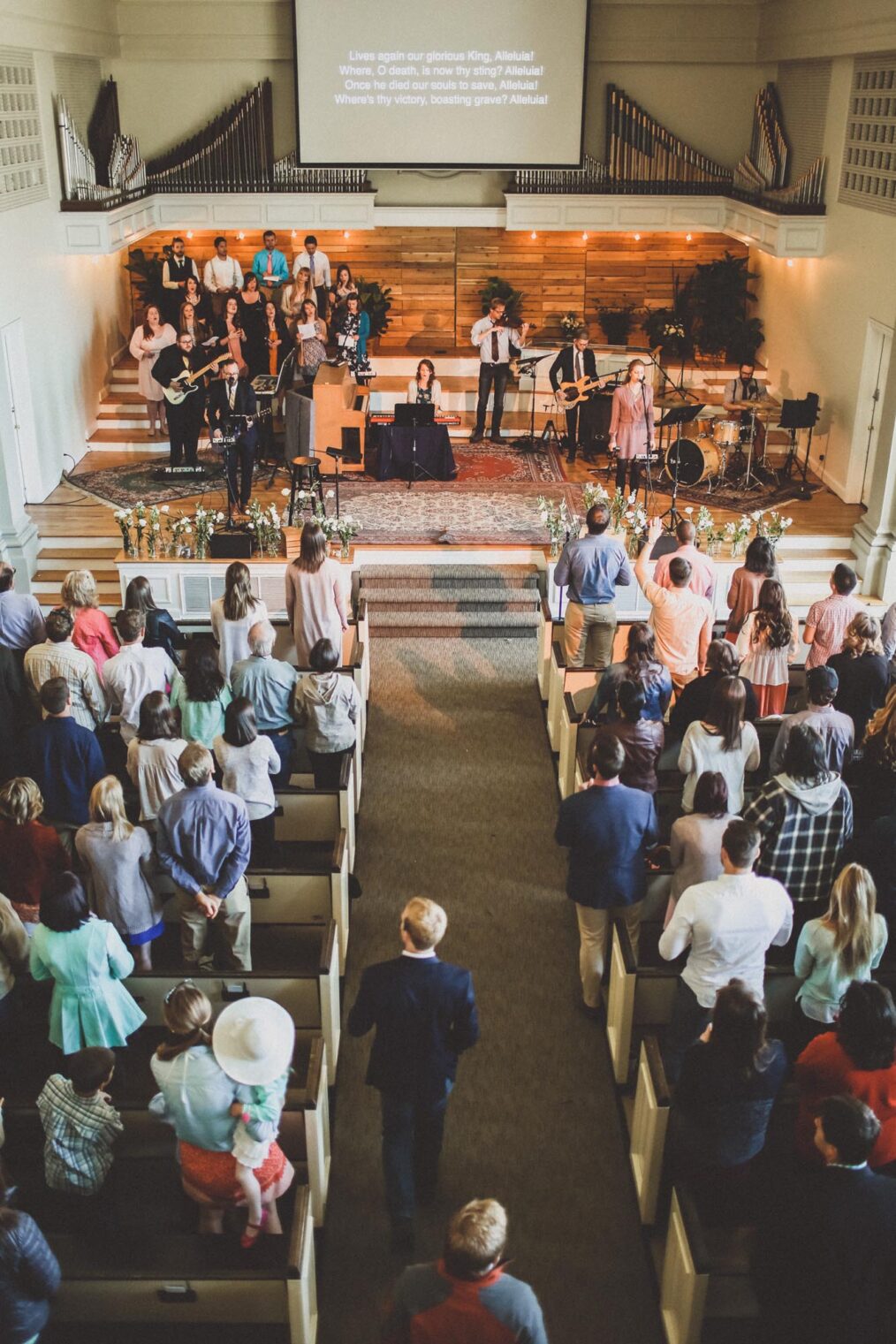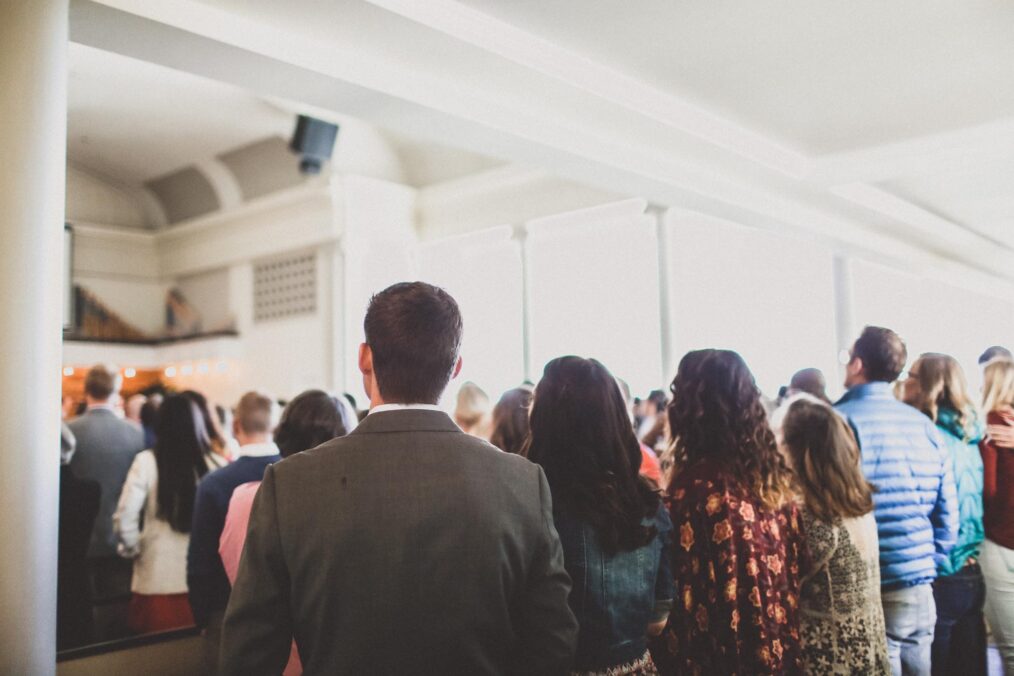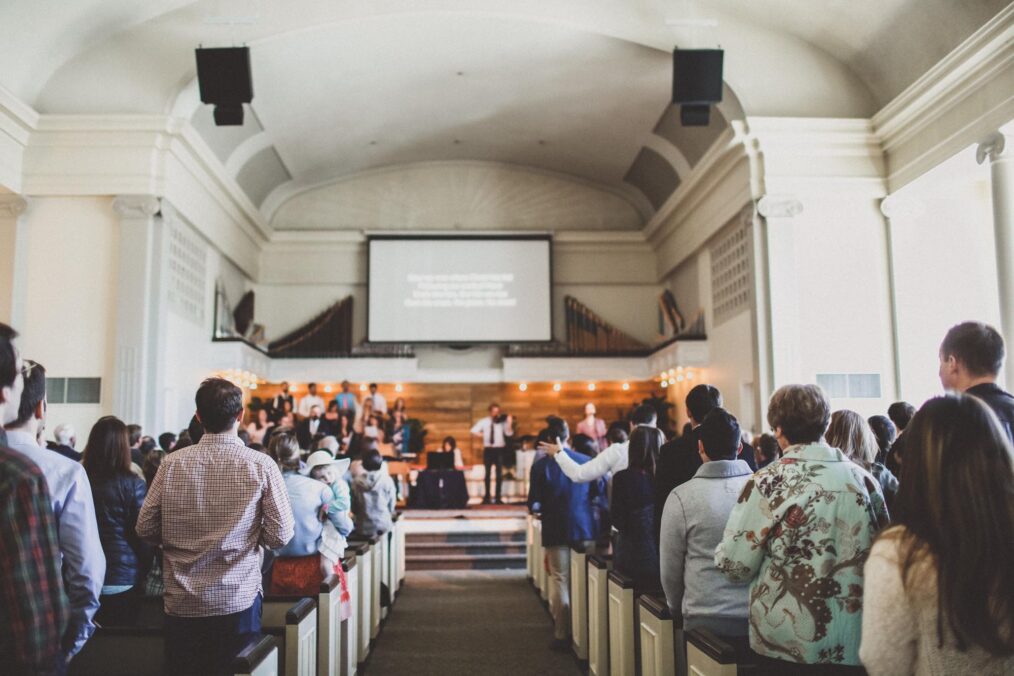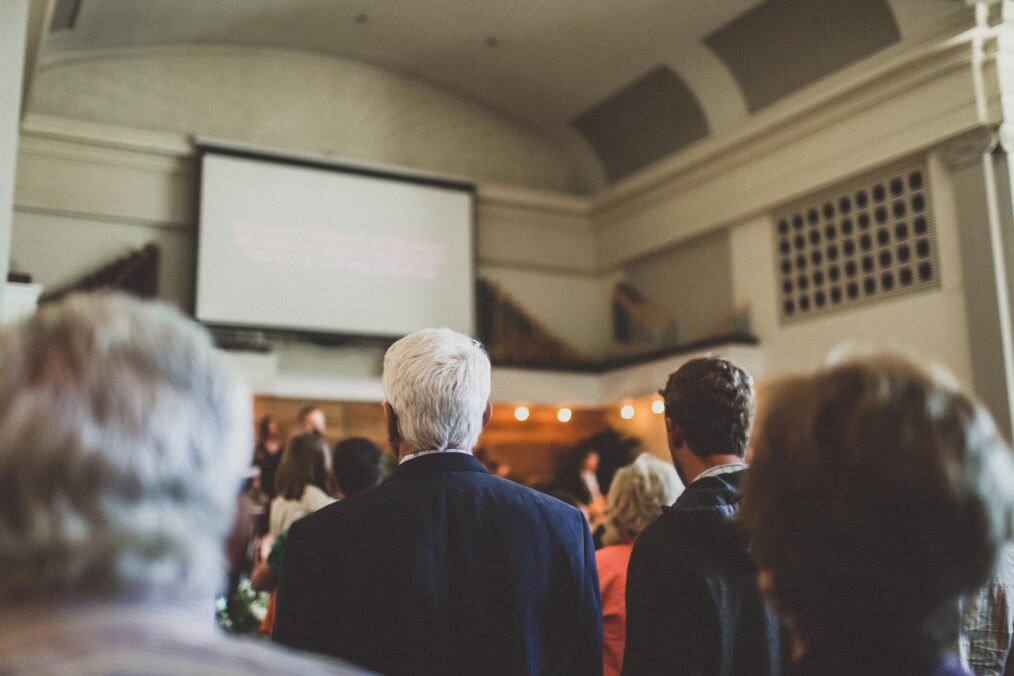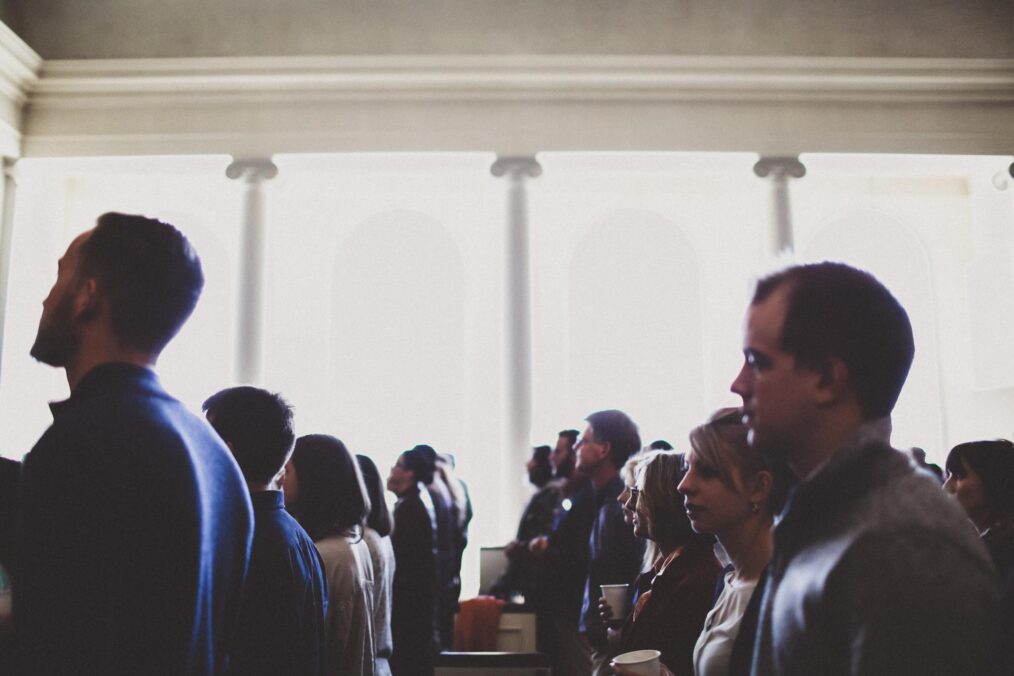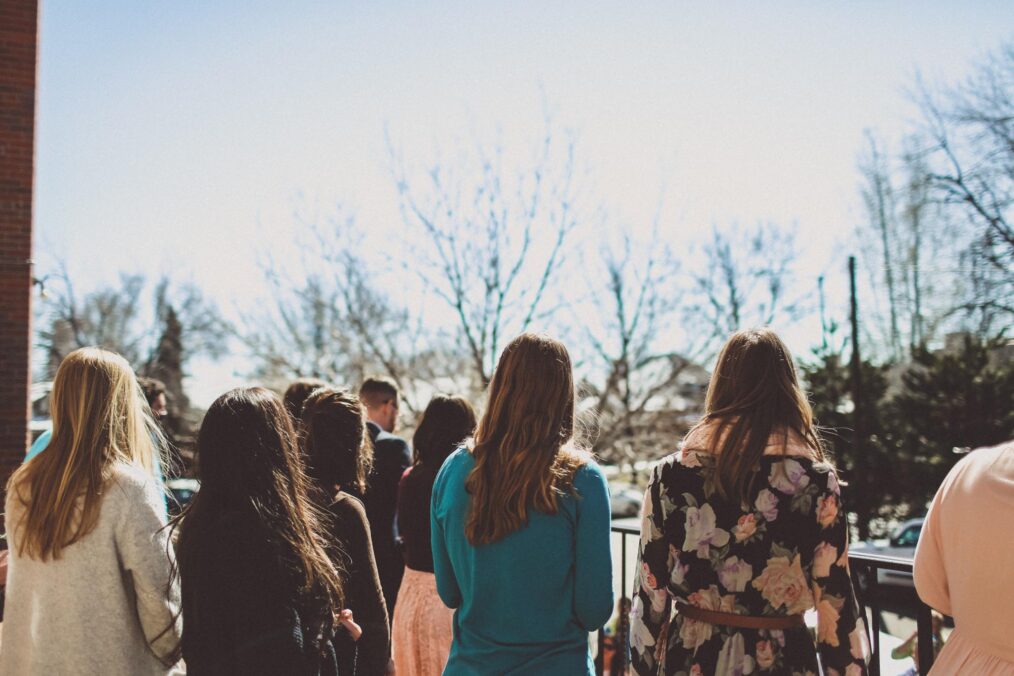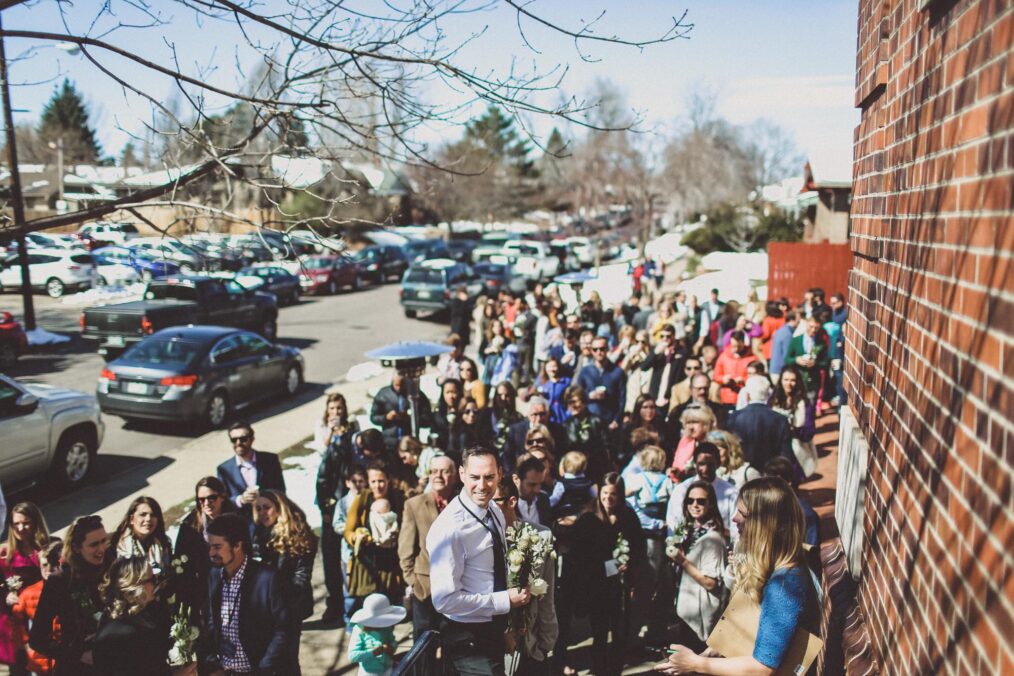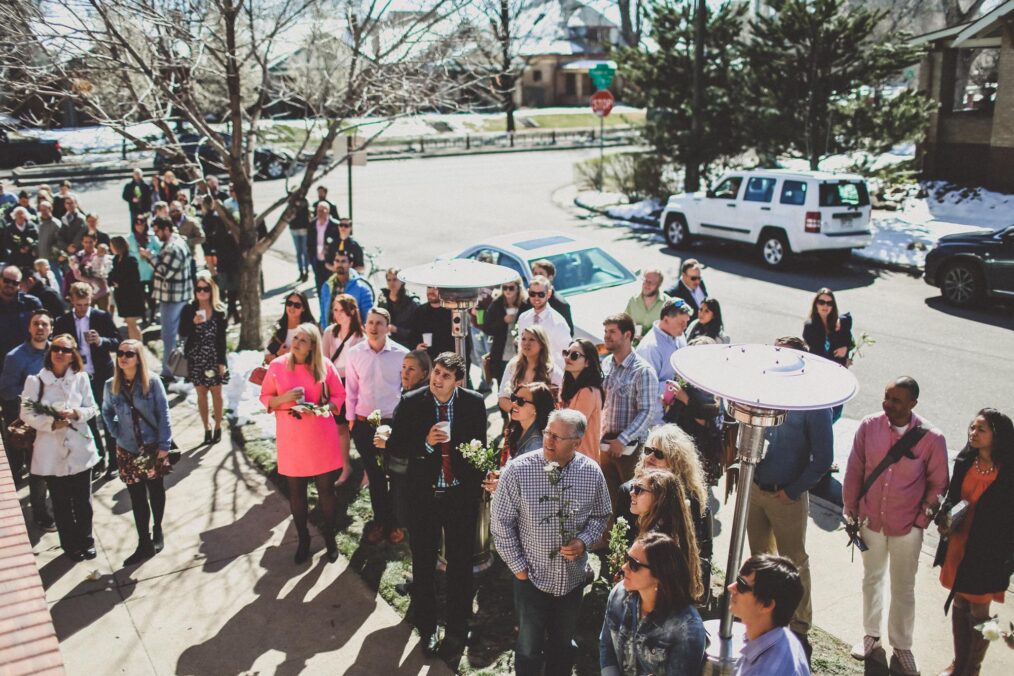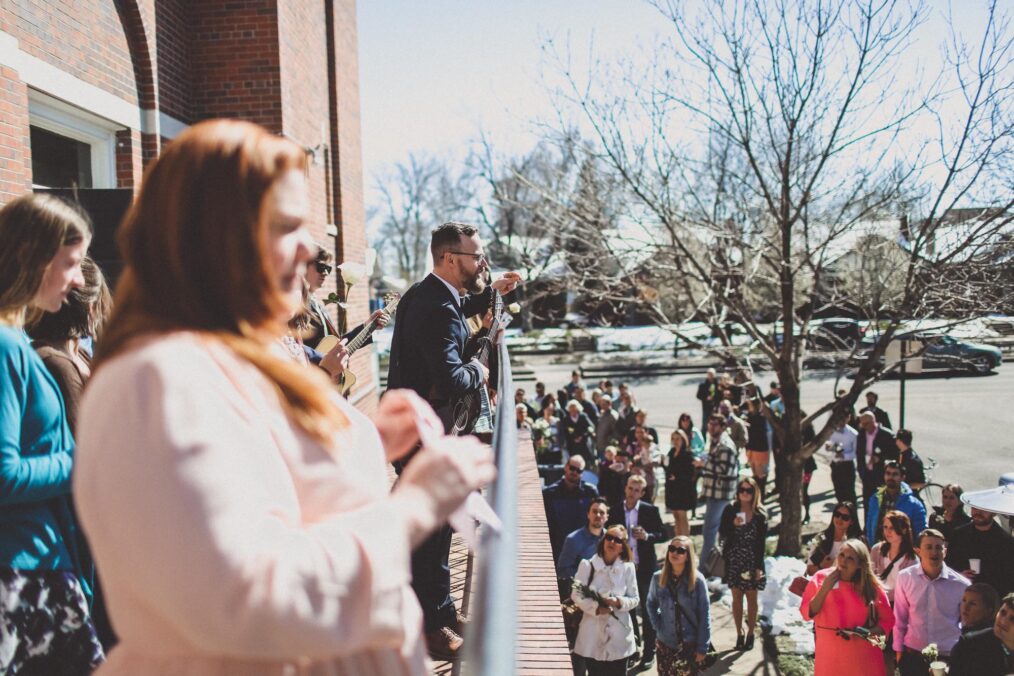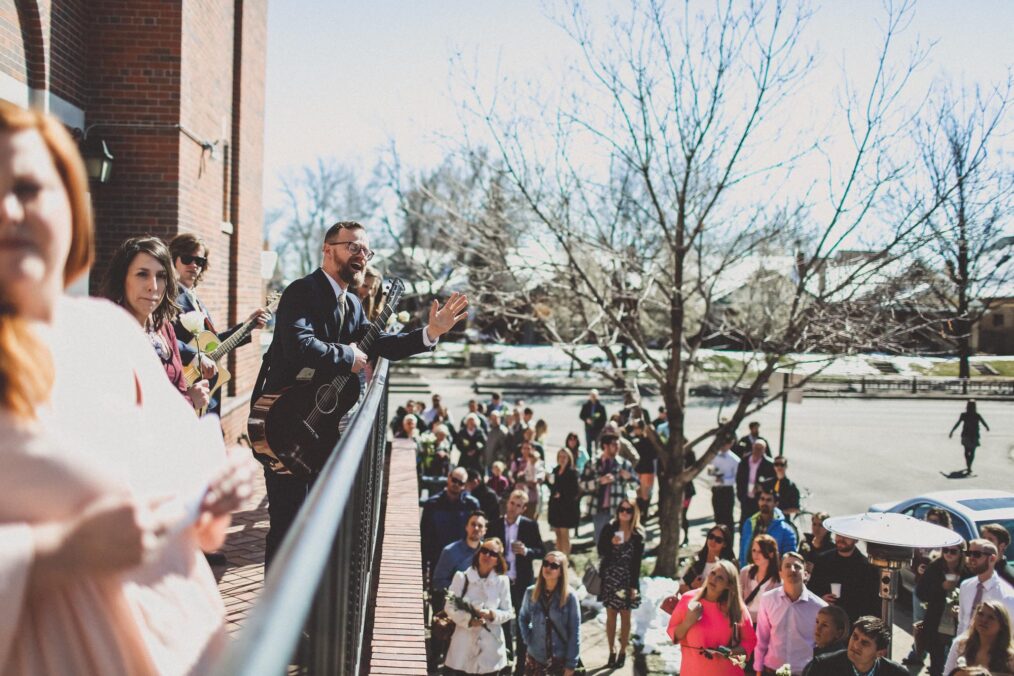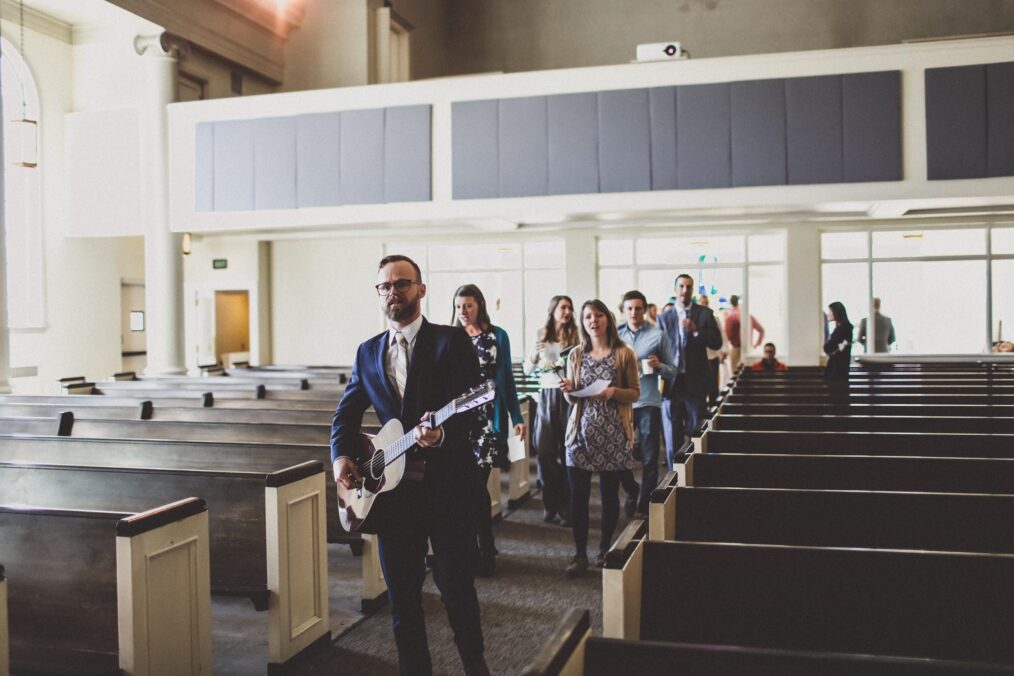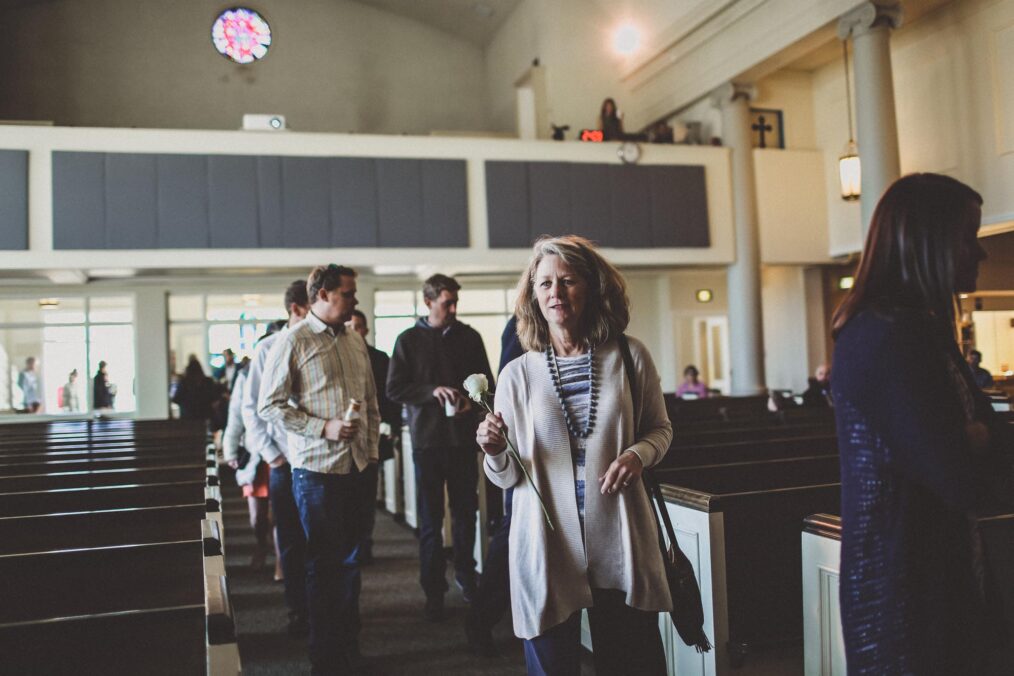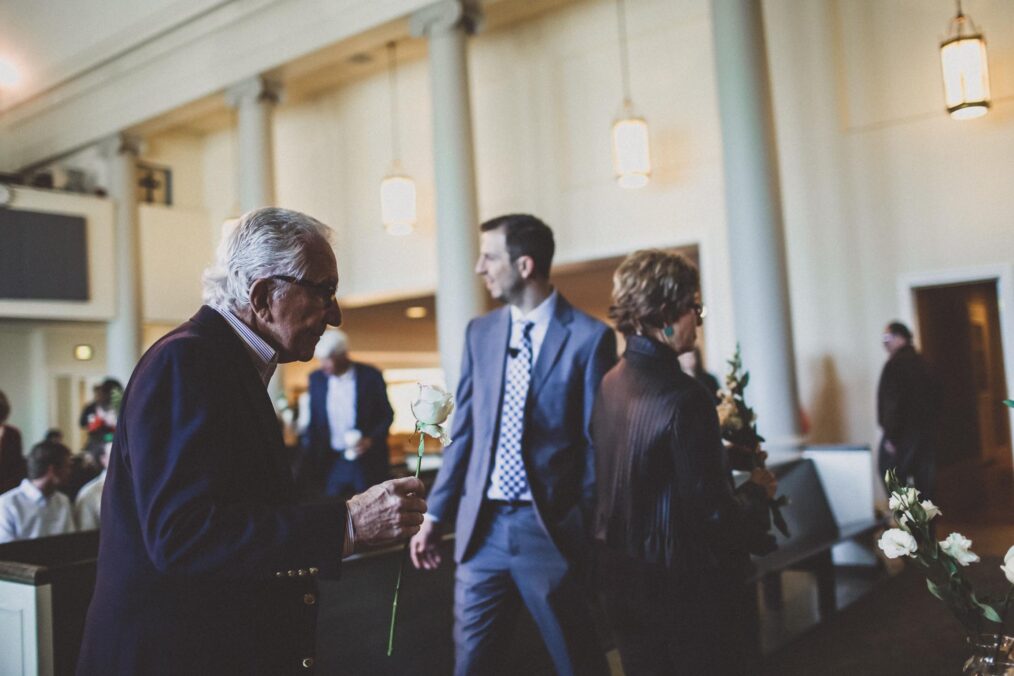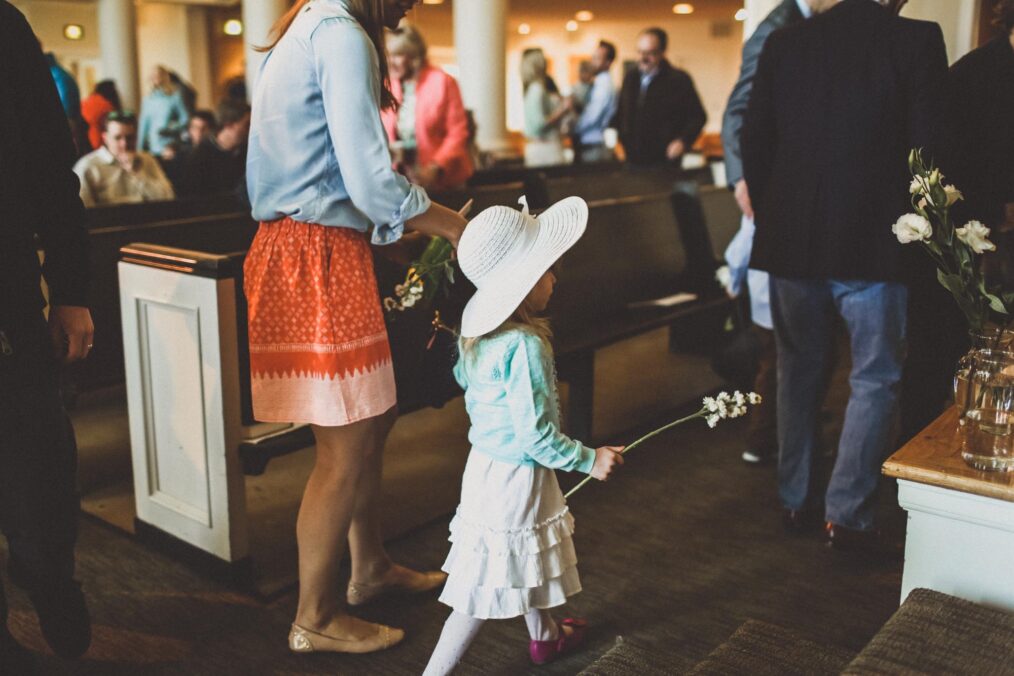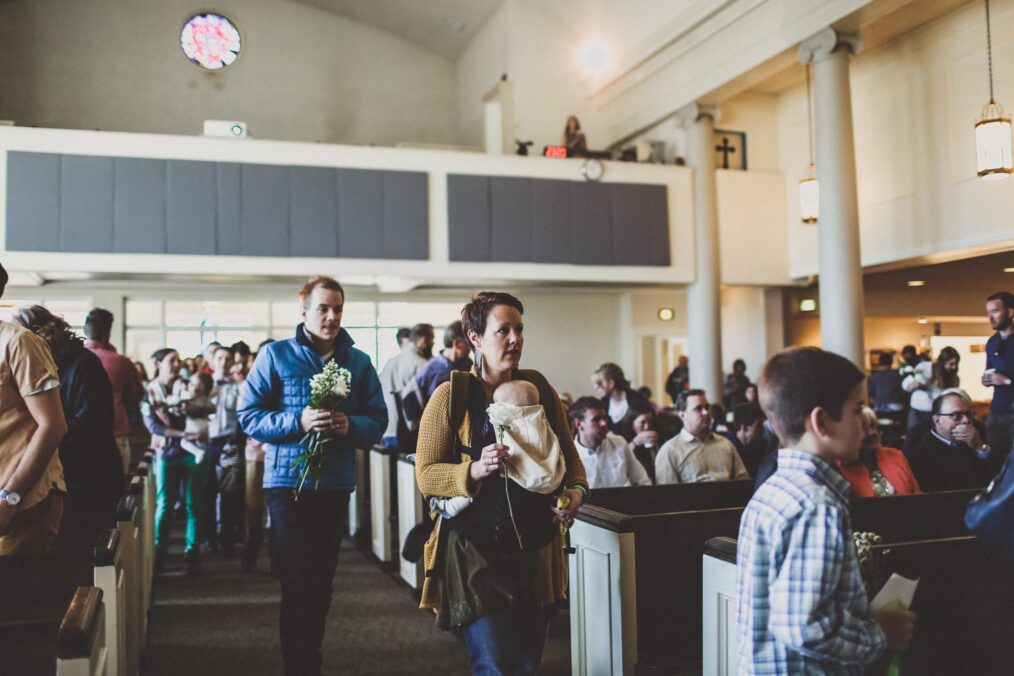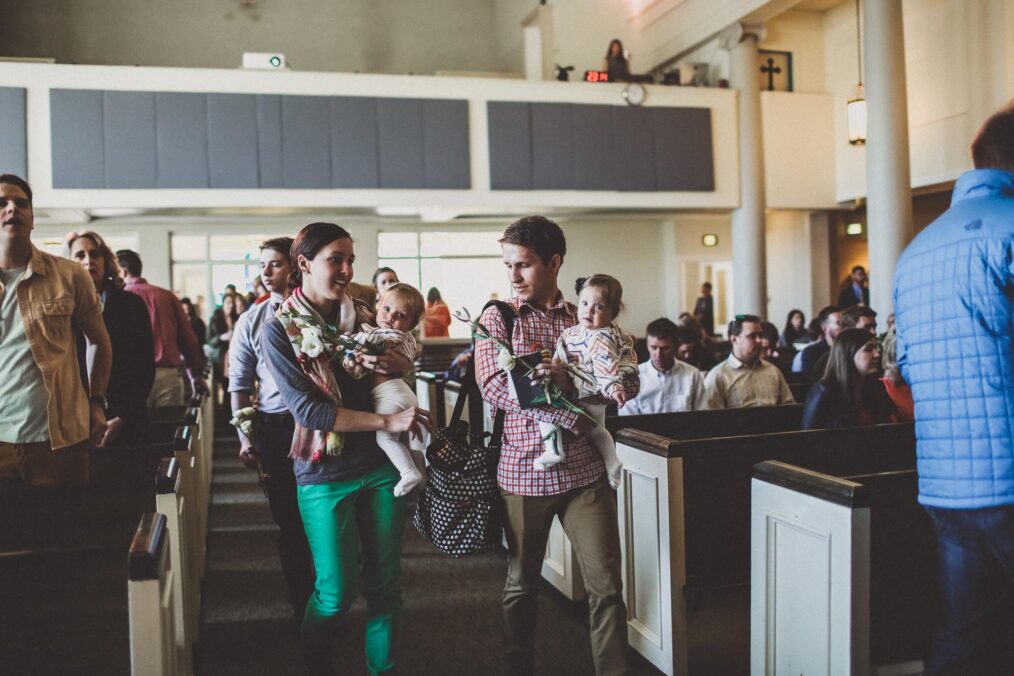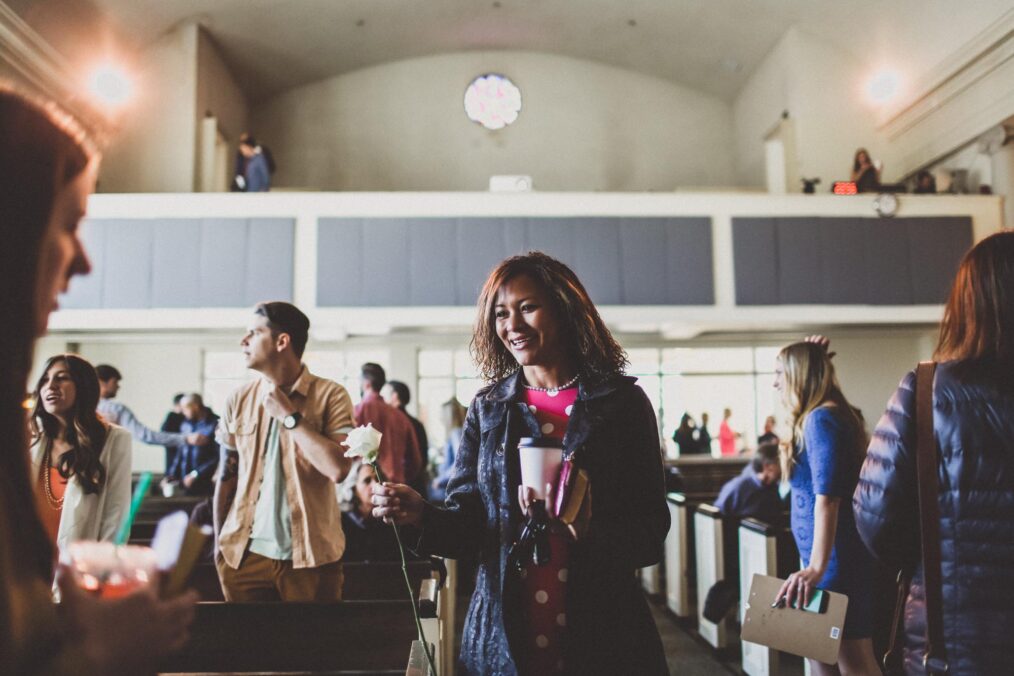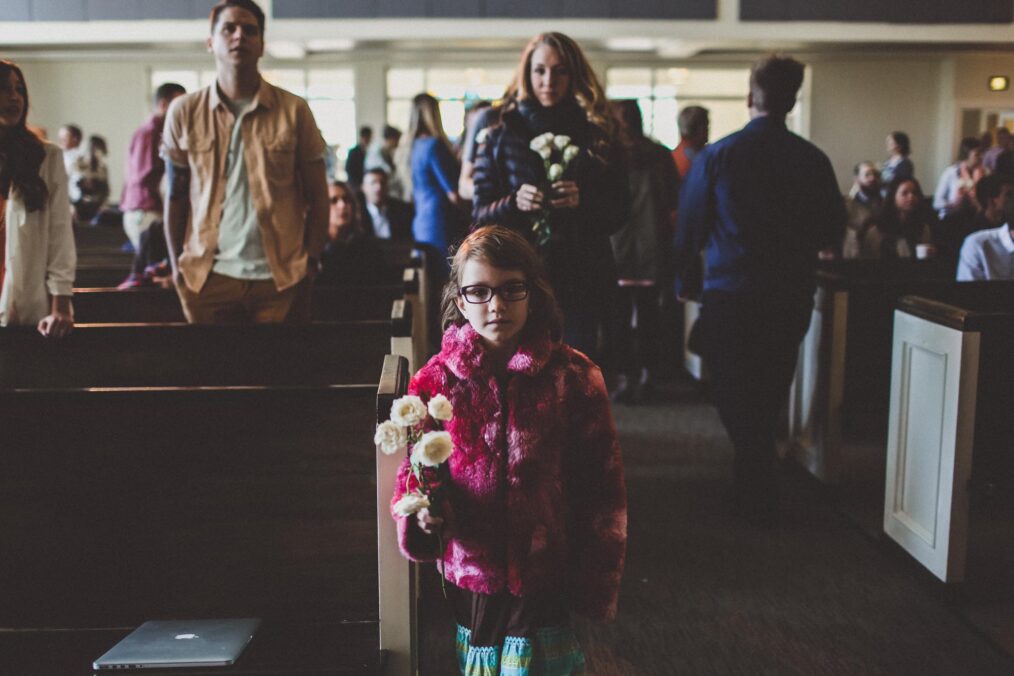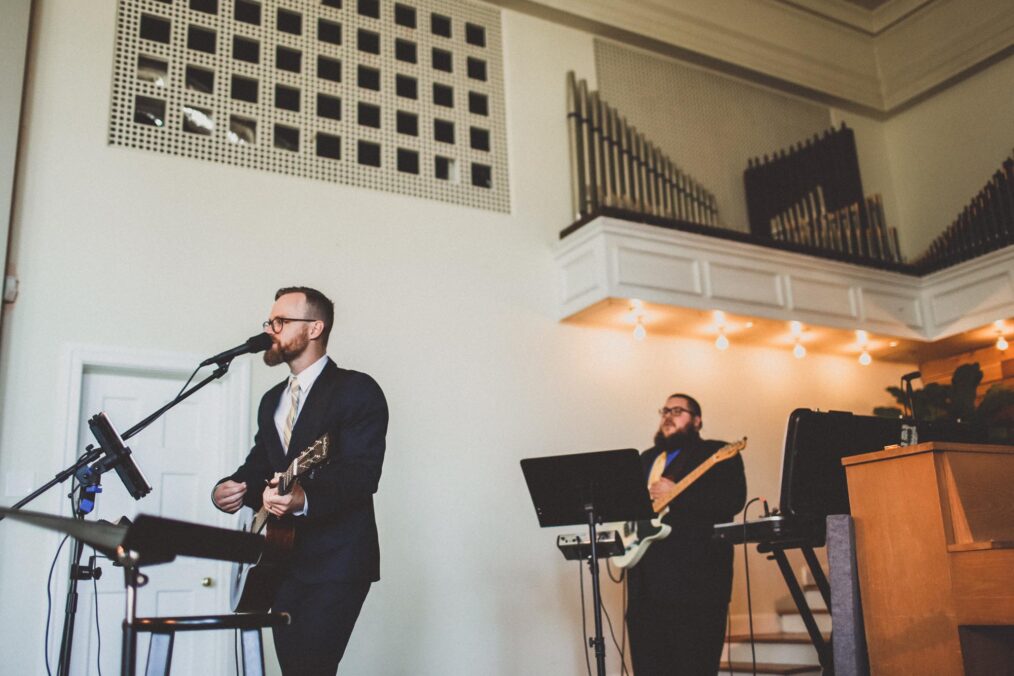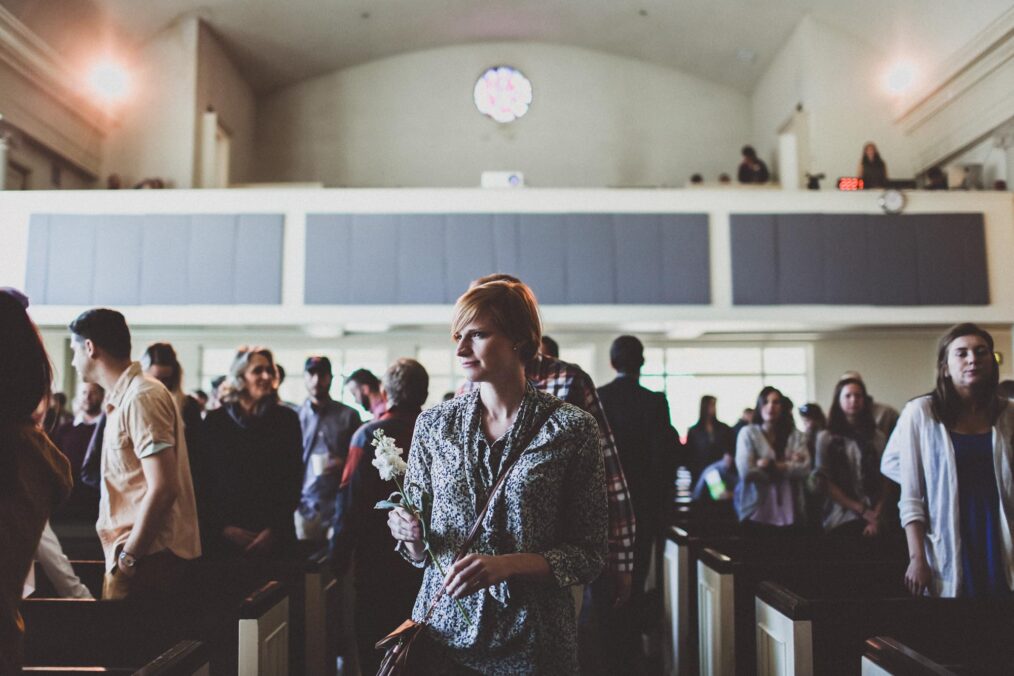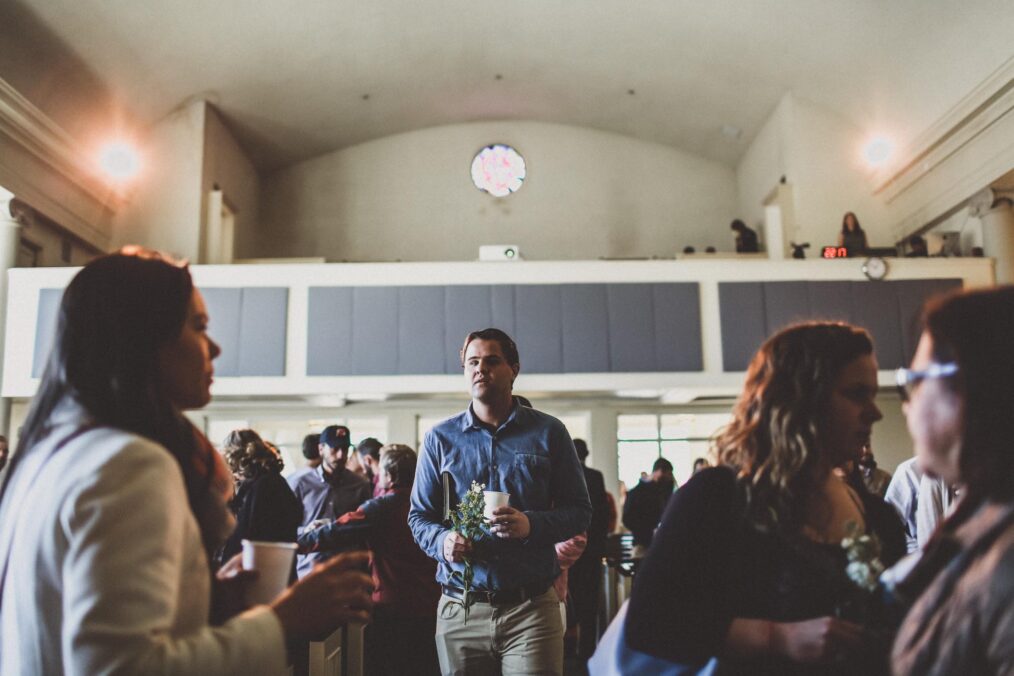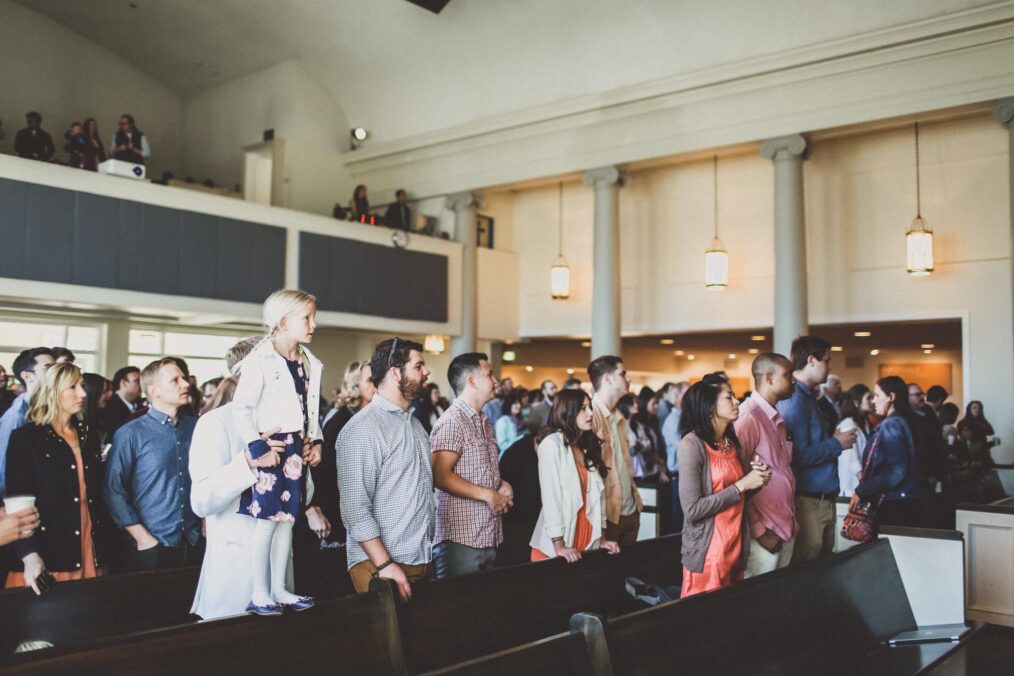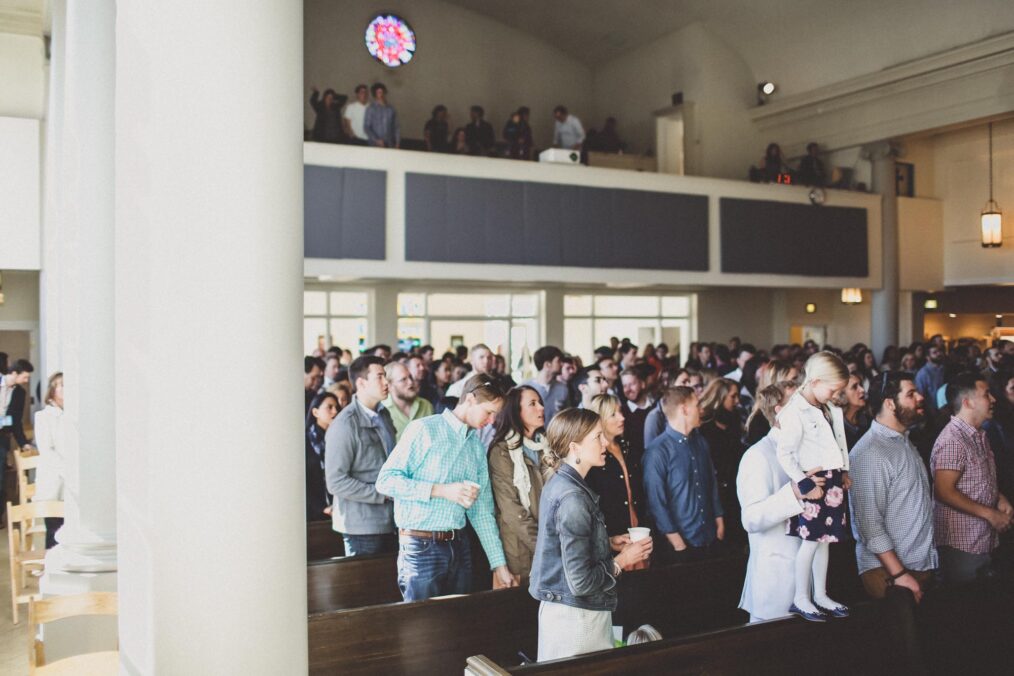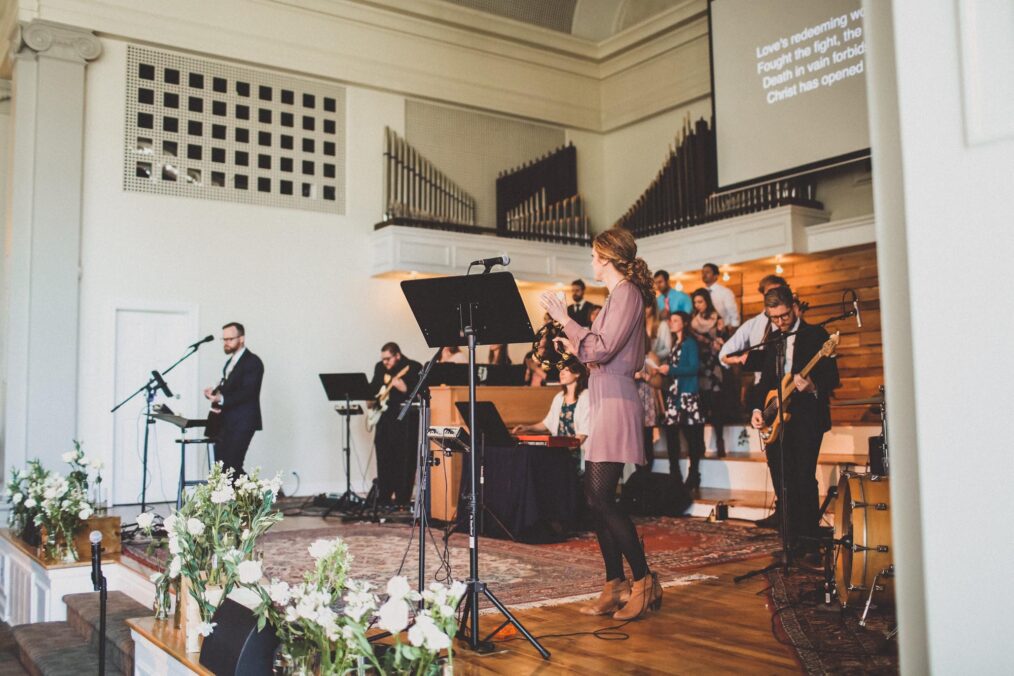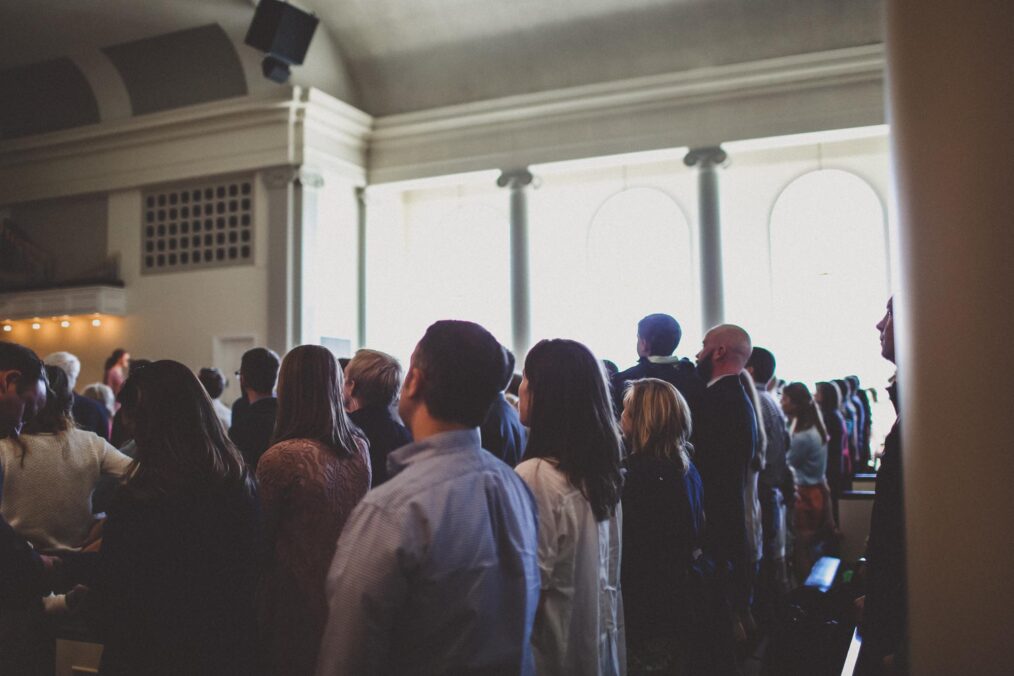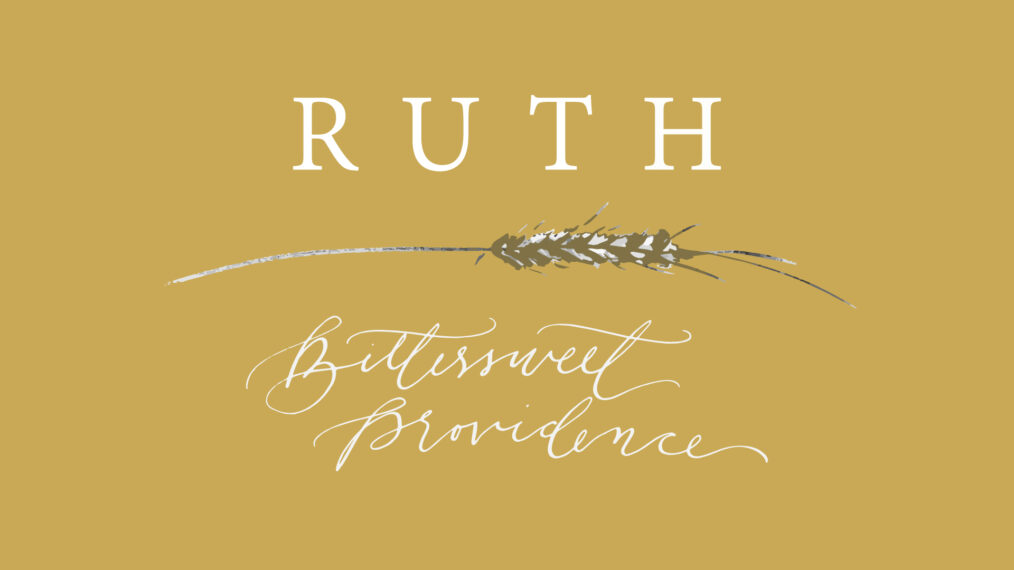- Praise Jesus who holds all authority on heaven and earth!
- That we would be disciples who love & obediently follow Jesus
- For your neighborhood, workplace, & schools
- Pray for church plants/missionaries that Park Church supports:
- Nationally – Marottas in Richmond, McLaughlins in Knoxville, Morginskys in Denver
- Internationally – Bartols in the Czech Republic, Procopios in Paris, and the Perezs in Spain
- That we would be filled with the Spirit to boldly witness of Jesus
About the Artwork
You may have noticed the artwork for The Coming of the King: Advent & Christmas—the two banners on the sides of the stage and the design on your bulletin and on the screen during the service. If you were here last year, you may have already picked up on the fact that it’s all very similar to the artwork for God With Us, our Advent 2015 series. You’re correct.
Last year we worked with Jeremy Grant, an incredible designer and collage artist, to create that work. This year, we’ve taken Jeremy’s art from last year and, with his permission, “remixed” it for The Coming of the King. Why did we choose to do this? Here’s what Jeremy writes about the original piece:
Purple and dark blue colors symbolize waiting and longing, and are the traditional colors of Advent. These darker areas (collaged from images of evening, twilight, deserts and water) show the brokenness and chaos of our world as they cut back and forth sharply.
Lighter colors (collaged from images of clouds and morning light) symbolize Jesus, the “light of the world,” cutting through darkness and chaos to bring light and peace. Little stabs of pink color represent joy.
There are two banners, representing Jesus’ comings to earth. Jesus, the messiah, has already come down to earth (as a child in Bethlehem) fulfilling the longing of the prophets and people of God from centuries past. And Jesus, the master of the cosmos, has promised he will return to earth again. So we look back, and remember what he has done. And we look forward with eager anticipation to what he will do next.
Whereas last year the lighter colors were in the shape of a sunburst, symbolizing the great shock and “thrill of hope” that is Christ actually among—God With Us—this year the lighter colors make a crown. Not too much of a stretch for a series entitled The Coming of the King, right? Why use something so obvious?
The lordship of Jesus Christ, although “obvious” to His followers, is certainly not obvious enough—not even to His followers! Do we understand that, in all of our darkness, in the valley of the shadow of death, in sin and error pining, a King has come and rescued us? Do we prepare Him room in our hearts to be the actual King? His crown is not symbolic, and His authority is over a real kingdom whose increase will never end.
Lastly, at the point of each crown is dot. Three of the four dots are purple and one is pink, symbolizing the advent candles that traditionally symbolize the four weeks of Advent leading up to Christmas Eve. In an Advent wreath, these four candles surround a larger, white “Christ candle” to be lit on Christmas Eve. In our illustration, the white crown stands in for the Christ candle, supporting those four other points.
About the Artist
Jeremy Grant is an award-winning artist and graphic designer. His collages and found-object assemblages have been exhibited in solo and juried shows across Colorado and Arkansas. Jeremy is married to an author, has two beautiful babies and loves Jesus, bourbon and robots. You can check out more of his work at jeremygrantcreative.com.
Below are some ways to engage with God during this season of Advent, particularly through reading, praying, and singing. We pray that God meets us in these disciplines! If you want to read about why we’re in a season of fasting during Advent, read “A Call To Fasting During Advent”.
Read
Ephesians 4:1-16 | John 17:20-23
Pray
This week we encourage you to meet up with someone, perhaps a roommate, spouse, or someone in your Gospel Community, to pray with utilizing conversational prayer (taken from Redeemer Presbyterian Church). As you pray with this other person, use the style of conversational prayer. It differs from what we often experience in group prayer: talking in detail about our prayer requests so that there is little time left to pray, or praying in one long monologue after another. Conversational prayer recognizes that prayer is dialogue, conversing in prayer not only with God but also with others present. As we pray, we invite and expect the Holy Spirit to be praying with us as well, guiding and edifying our prayers among us. This style of prayer also emphasizes the art of listening — to the Holy Spirit and to one another. Its use of short, focused prayers prevents anyone from dominating with long, lofty monologues or covering all the prayer requests in one breath.
Begin the prayer time with adoration, praising God for who He is. Think of an attribute and characteristic of God that relates to the topic, so you can build upon that. When a topic is complete, it will be clear by silence. Wait for someone else to present a new topic in prayer, or pose one yourself. Keep each prayer short (1-3 sentences) and focused on just one thought. Listen actively to and pray silently with the person praying. Discipline yourselves to not think about what you’ll pray next. Build upon the prayers of one another, as in conversation, so that you are knitting the short prayers into a broader and deeper one. Silence is okay! Rest in it. Don’t rush to fill it. Anyone can continue praying within the same topic, or move onto the next one. Don’t close each short prayer in “Jesus’ name, amen.” This fosters continuity and the leader will close the entire prayer time at the end. If a scripture comes to mind, do pray it. This is often how the Holy Spirit edifies our prayers. As you pray, also bring in His promises, commands, and desires. Doing so will help guide and transform your requests. Use everyday language. Pray spontaneously, not necessarily in order. Pray loud enough for the other person to hear you.
Here are a few other things you could pray and ask God for:
- That Park Church and the Church in Denver would be united
- That we would each know our gifts as individuals as well as our roles in seeking the maturity of the body of Christ
- Pray through lines from “O Come O Come Emmanuel” – (i.e. “Bid Thou our sad divisions cease…” Where are there divisions? Pray for unity and reconciliation.)
Sing
“O Come O Come Emmanuel” is a translation of a Latin hymn “Veni, Veni, Emmanuel” which was a paraphrase of the “O Antiphons.” The “O Antiphons” (also known as “The great O’s”) have been used for over twelve centuries during the final week of Advent in monasteries & convents just before the Magnificat (Mary’s song found in Luke 1:46-55). Each verse highlights a different biblical name for Jesus: Wisdom, Adonai (or Lord), Root of Jesse, Key of David, Dayspring or Radiant Dawn, King of Nations (or of the Gentiles), Emmanuel. If you’re looking for a version of the song to listen to, click here.
O Come O Come Emmanuel?
O come, O come, Emmanuel and ransom captive Israel?
That mourns in lonely exile here until the Son of God appear
O come, Thou Day-Spring, come and cheer our spirits by Thine advent here
?And drive away the shades of night and pierce the clouds and bring us light
Rejoice! Rejoice! Emmanuel shall come to thee, O Israel
O come, Desire of nations, bind in one the hearts of all mankind
?Bid Thou our sad divisions cease and be Thyself our King of Peace
O come, Thou Rod of Jesse, free Thine own from Satan’s tyranny?
From depths of Hell Thy people save and give them victory o’er the grave
O Come, Thou Wisdom from on high and order all things far and nigh?
To us the path of knowledge show and cause us in her ways to go
Below are some ways to engage with God during this season of Advent, particularly through reading, praying, and singing. We pray that God meets us in these disciplines! If you want to read about why we’re in a season of fasting during Advent, click here.
Read
Psalm 63 | Matthew 6:31-33
Pray
This week we encourage you to practice “listening prayer.” We often monologue in prayer before God without even taking time to listen. Similar to the directive Eli gave to Samuel in 1 Samuel 3, speak to the Lord and tell Him you are listening. Then actually take time to do it! It might be a couple minutes, it might be 10 minutes. You might get distracted during this time… That’s ok! The goal is to try to listen; not listen perfectly.
Don’t rush on to other things, but slow down and enjoy God’s presence! He is with you. Meditate on that amazing truth. If God seems to speak or remind you of anything, write that down in your journal or phone! It might be a simple phrase or word, a passage of Scripture, a picture or vision. Pay attention to the small things! Consider praying the prayer below from AW Tozer:
O God, I have tasted Thy goodness,
and it has both satisfied me and made me thirsty for more.
I am painfully conscious of my need of further grace.
I am ashamed of my lack of desire.
O God, the Triune God, I want to want Thee;
I long to be filled with longing;
I thirst to be made more thirsty still.
Show me Thy glory, I pray Thee, that so I may know Thee indeed.
Begin in mercy a new work of love within me.
Say to my soul, “Rise up, any love, my fair one, and come away.”
Then give me grace to rise and follow Thee up
from this misty lowland where I have wandered so long.
In Jesus’ Name, Amen.
Here are a few other things you could pray and ask God for:
- A renewed hunger and devotion for Him
- A greater experience of His presence with you in this season of Advent both individually and as a church when we gather
- An increasing awareness of sin and a heart that’s quick to repent
- That we would be a people who seek first His kingdom here in Denver
- Anyone you know who’s going through a hard time or whose heart might be cold, shut off, apathetic, or complacent
Sing
This week’s song is “Come Thou Long Expected Jesus,” written by Charles Wesley in 1744. It was written in response to Wesley’s observation of orphans around him as well as the class divide in Great Britain and his longing for Jesus to mend those things.
We’ll be singing through the Rain For Roots version that you can find here. As you sing the song, ask God to increase your longing for Him in this season. Where do you need to be set free today? What are you afraid of? Turn to Jesus for rest!
Come Thou Long Expected Jesus
Come, thou long expected Jesus, born to set thy people free
From our fears and sins release us, let us find our rest in Thee
Israel’s strength and consolation, Hope of all the earth thou art
Dear desire of every nation, joy of every longing heart
Born Thy people to deliver, born a child and yet a King
Born to reign in us forever, now Thy gracious kingdom bring
By Thine own eternal Spirit Rule in all our hearts alone
By Thine all sufficient merit, raise us to Thy glorious throne
We are waiting, we are waiting, we are waiting for you (4x)
Hallelujah, what a Savior!
In Acts 13:1-4, the early church was at a crossroads. Hungry for God’s power and direction, we find them spending intentional time in prayer, fasting, and worship. It was in that little prayer meeting where the Holy Spirit spoke to them and called them to send out Paul and Barnabas as missionaries, forever impacting the course of the church! A couple months ago the elders felt an increased conviction about our pursuit of God, particularly through the disciplines of prayer and fasting. We responded by beginning to fast and pray together on Wednesdays with our elder and staff team. It has been an amazing (and challenging) gift to us that God has been using in multiple and profound ways, and we wanted to extend a broader invitation: During this season of Advent, we want to invite the whole church into a season of corporate prayer and fasting in order to seek God’s face and His power and His direction for Park Church.
Before we get into specifics, what exactly is fasting and what does it have to do with Advent?
What Is Fasting?
Fasting is one of those disciplines that most Christians know they should do, but rarely get around to it. The interesting thing is that it’s one of the disciplines we see Jesus doing (Matthew 4:1-11; 17:21), a discipline He assumes His disciples are doing (Matthew 6:16) and a discipline we see the early church continuing to do (Acts 13:1-3; 14:23). So what is it? David Mathis defines fasting as “voluntarily going without food — or any other regularly enjoyed, good gift from God — for the sake of some spiritual purpose.” Some people, for medical reasons or otherwise, can’t fast from physical food but that doesn’t mean they’re excluded. Many have found that fasting from social media, television, particular activities or foods have shown themselves to be a helpful way of intentionally engaging with God.
Fasting ultimately is about refraining from one thing that we might engage more intentionally with another, namely God. Sam Storms comments, “The ironic thing about fasting is that it really isn’t about not eating food. It’s about feeding on the fullness of every divine blessing secured for us in Christ. Fasting tenderizes our hearts to experience the presence of God. It expands the capacity of our souls to hear his voice and be assured of his love and be filled with the fullness of his joy. Let me say it again: Fasting is not primarily about not eating food. It is primarily about feasting on God.”
What does Advent have to do with fasting?
The word “advent” means “arrival” or “coming”. The season of Advent marks the beginning of the Christian Calendar four Sundays before Christmas. It looks back to Christ’s first advent in a humble manger in Bethlehem, but also looks forward to His second advent as glorious judge who is coming in the clouds. This season is about longing, hoping, and anticipating Christ’s return to right every wrong in the world and wipe away every tear. It’s about acknowledging the shadows we face in this world but also praying for the dawn to drown out the darkness. While fasting is generally a discipline associated with the season of Lent, we believe that fasting during the season of Advent can be a powerful aid to our engagement of this season as it is designed to intensify our desires and longing for God.
What are we asking you to do?
Would you consider joining us in prayer & fasting for 4 Wednesdays during the season of Advent? Every Wednesday, we would love for you to fast during breakfast and lunch for the purpose of praying that God would give us two things:
- A hunger for God – We don’t just mean more knowledge about God, but rather we want to be a people who know Him intimately, commune with Him, and experience Him! He is not merely a doctrine to be studied, but rather a Person to be known.
- A unity in mission – As we get to know Him more and more, an inevitable by-product is we want others to know Him! People naturally share the things that they love… Would you cry out with us that God would provide more clarity and unity for us as a church as we join Him in all He’s doing in Denver and the world?
Friends, these are things that we believe only the Holy Spirit can do in our hearts. We can’t grit our teeth to muster up more hunger. We believe prayer stands as a reminder that apart from Him we can do nothing.
Practicals
Practically speaking, we are asking you to refrain from breakfast and lunch on Wednesdays in order to spend time intentionally praying for four Wednesdays of Advent. Each week, we will provide something for you to “read, pray, & sing” at some point during the day or even with your roommates or family before or after dinner, but by no means is that the only or one thing you should do. Click here to see our fasting guide for week 1 of Advent. Many find it helpful to get out of their home or office in order to engage more intentionally due to the distractions found in your rhythms of normalcy. Consider setting reminders on your phone or calendar, or having one person you will fast with who you can keep in touch with throughout the day. Whatever it is you opt to do, we encourage you to have a plan! Below are a few resources that might be of assistance to you in this season.
Resources
Books*
“Hunger for God” (John Piper, free digital copy)
“Come, Thou Long-Expected Jesus” (edited by Nancy Guthrie)
“The Dawning of Indestructible Joy: Daily Readings For Advent” (John Piper & David Mathis)
“Good News of Great Joy: Daily Readings For Advent” (John Piper)
*All of these books can be found on our book shelves.
Sermons
“Prayer, Fasting, and the Course of History” (John Piper)
“Feasting On God” (Sam Storms)
Articles
“Fasting For Beginners” (David Mathis)
“Why Do Christians Fast?” (An Interview with John Piper)
“Sharpen Your Affections With Fasting” (David Mathis)
Music
“Waiting Songs” (Rain For Roots)
“Messenger Hymns: Advent” Matt Boswell
Vision and Symbolism • JD Raab
The gospel is moving throughout the earth. It is confronting actual men and women with the truth in actual cities where it’s causing actual change. Whereas I’m tempted to think of it as a soft thing—a whisper between friends or some Precious Moments angel in a glass-doored dining room hutch—the gospel is nonetheless a vast, moving force, changing even the most fundamental things about our world as you read this.
The gospel demands a decision: ultimately you’ll either violently oppose Jesus’ rule or to submit to it entirely with pure joy. In the book of Acts, no one is safe from getting caught up in this tension; Caesar is not safe from getting caught up in this tension! That exact gospel tension is here now in our own city, still doing its good work—Jesus demanding with absurd love for my very soul that I “Choose this day whom I will serve.”
Working with Lane on this triptych was a neat experience, because I had so many things (too many things) that I wanted to communicate, yet was at the mercy of an incredible abstract painter, with whom you “feel” arguments way before you “read” or see them. We brainstormed about an organic, “water”-like mass overtaking a more structured, rigid space. There needed to be a tension where the two “halves” of each painting met. A thick, golden, messy tension. I cannot tell you just how skillfully and perfectly she made this vision happen!
So it goes without saying that the blue part represents the gospel, advancing decisively and interminably on the land/our cities/the world (the red part). The overlaps between those two bodies represent the heavy, potentially wonderful decision that all of life faces—to submit with joy or violently resist and be swallowed up.
Creative Process • Lane Geurkink
After walking through the concept and overarching message of Acts with JD my first initial idea was to make something BIG. That not only the composition would speak to the concept, but that the size would be so large that it would be hard to miss and captivating.
I chose the burnt red color for the background of the “city” lines because I wanted a color that had a high contrast value, that wasn’t too pretty and represented a kind of beautiful brokenness. The “city” does not represent a specific city but a hypothetical one. This was drawn with white chalk paint pens. The blue is meant to represent the flooding of the gospel over the city, as JD said before. I used several washes of shades of blue, white, and gold to make this section. The gold is an added representation of the gospel too. My hope is that with the organic shapes of the blue with the contrast of the geometric lines of the city, it will speak boldly to the tension of the world without the Gospel and our need for it. I was so happy to work with JD on this and have his help to conceptually create something for Park, as well as his exceptional design!

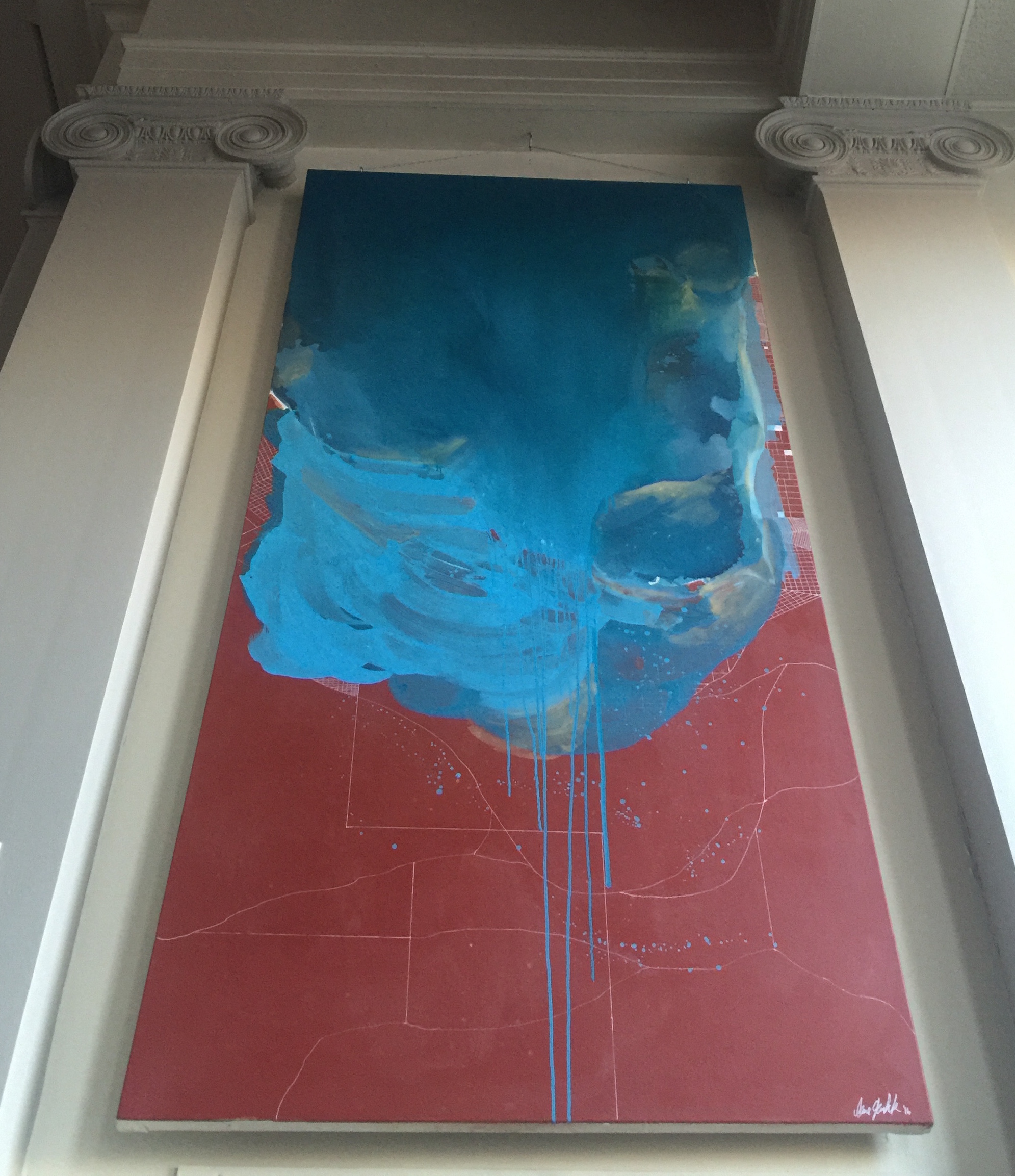
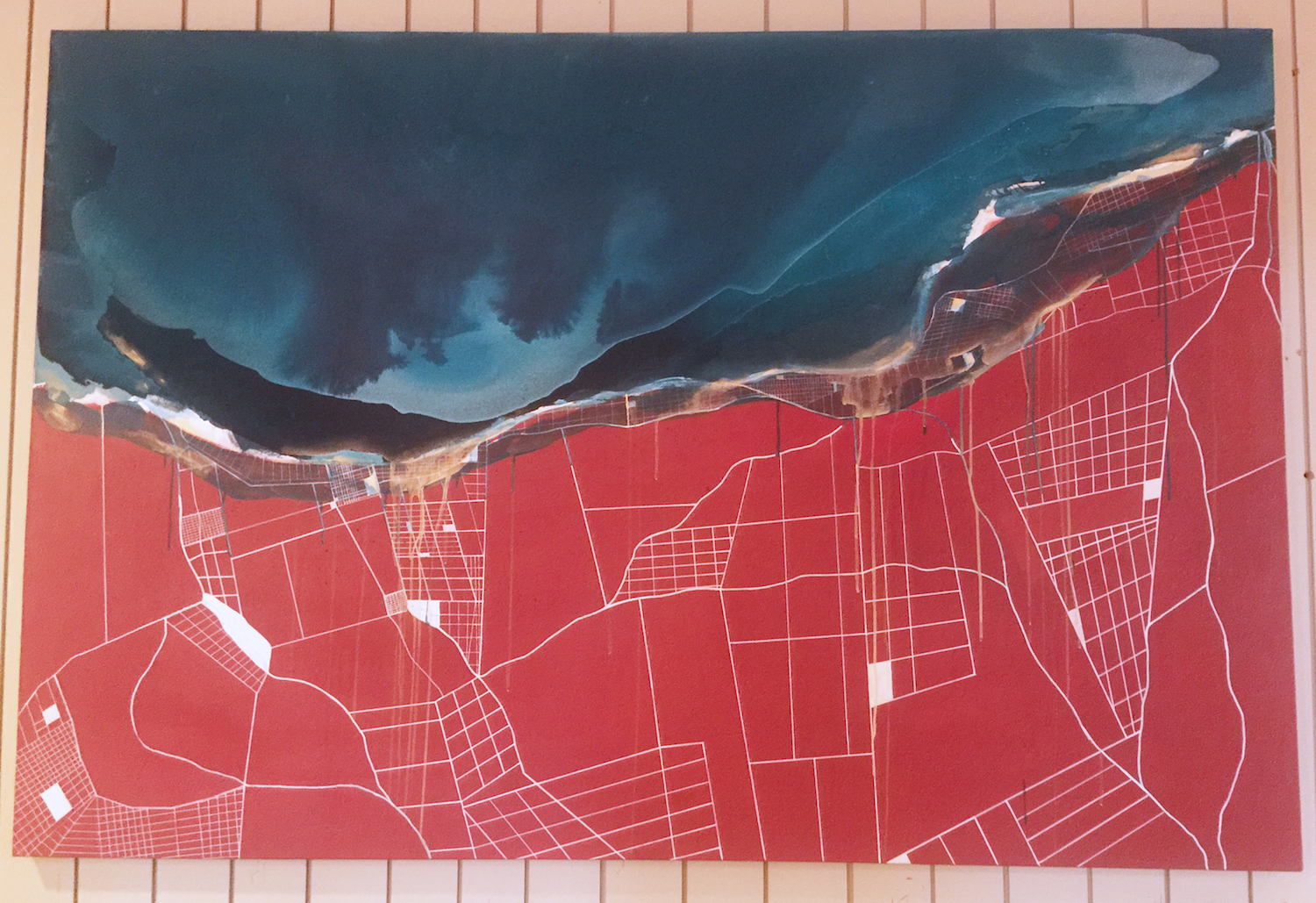
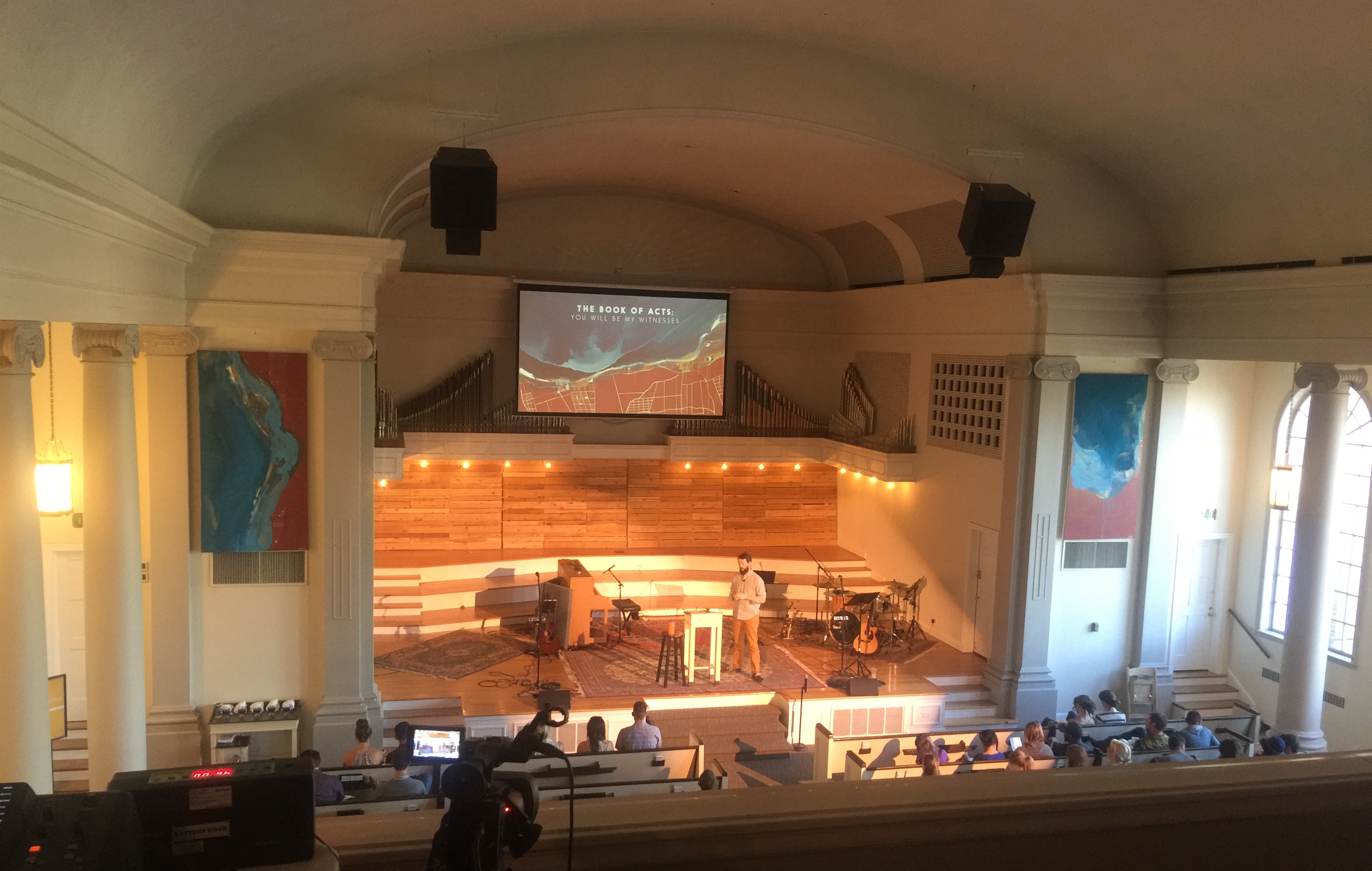
Photos from the event taken by Leah Mills.
Park Church loves the arts and artists, and we try to occasionally feature different artists from our church on our blog. The artwork for our current series in Ruth was created by a collaborative work between the calligraphy & drawing of Bethany Siekmeier and JD Raab as a graphic designer. Below is the final sermon series graphic as well as a sampling of some of the lettering and drawings she sent us before JD put together the final graphic! You can find more samples of her work here.
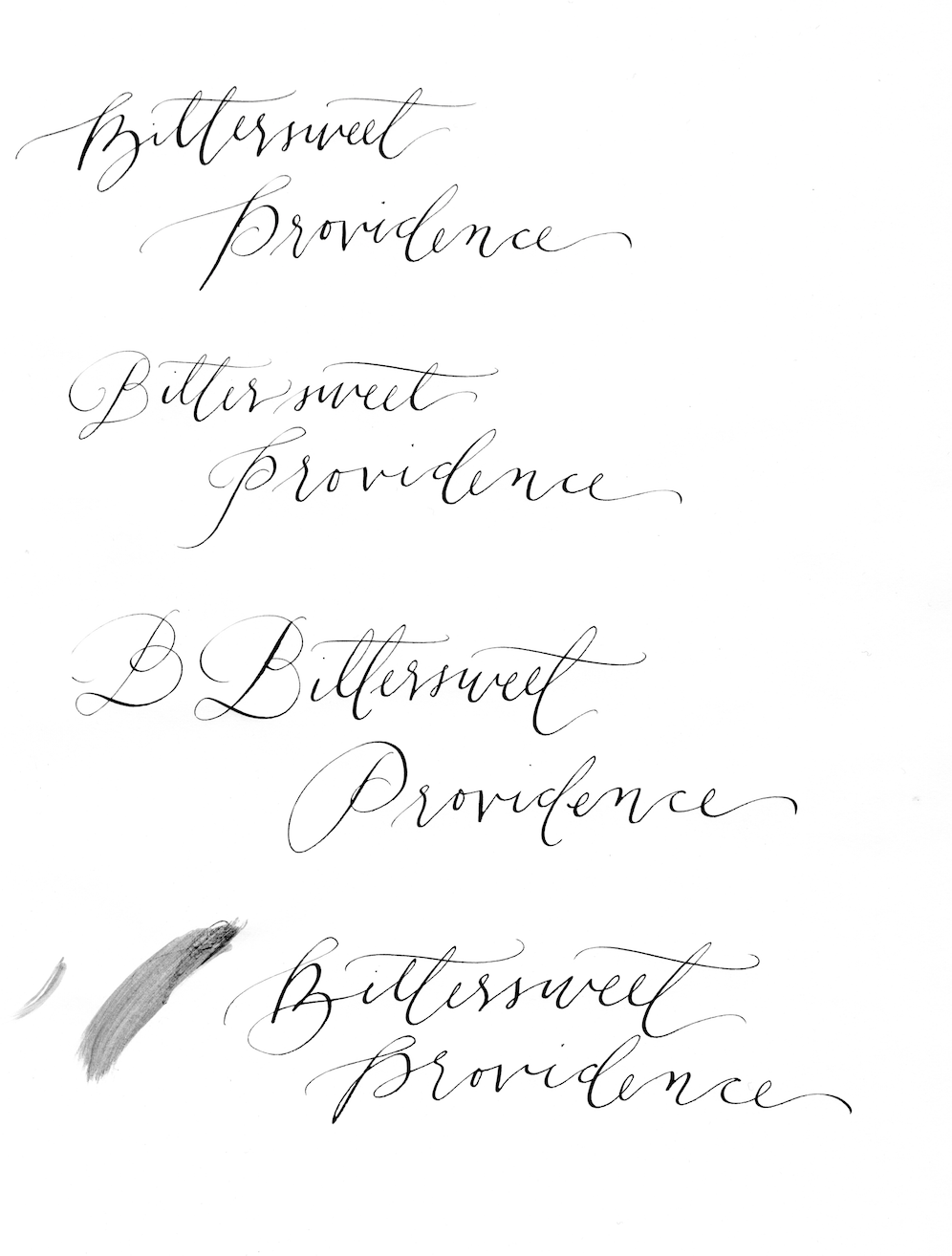
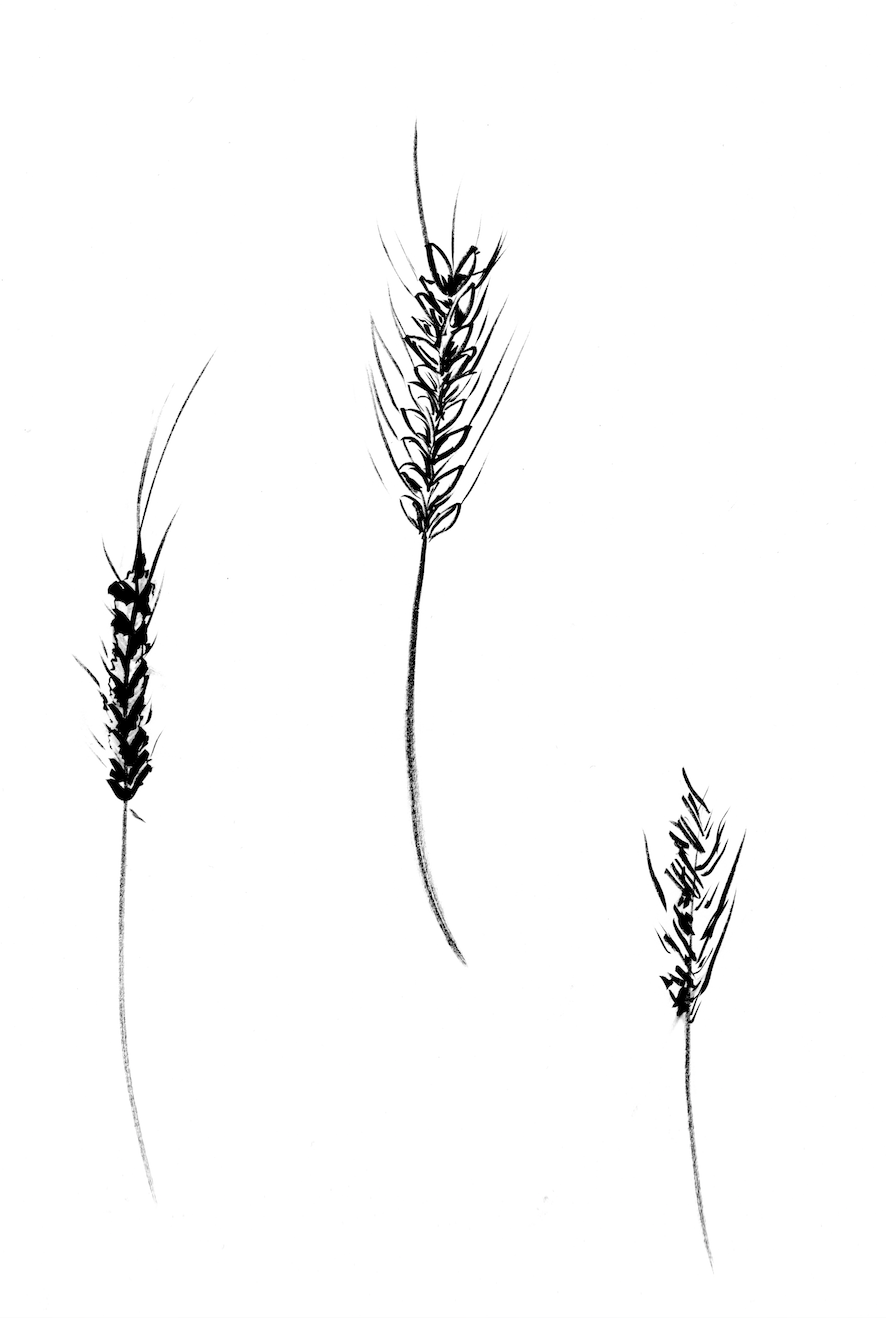
You might have noticed us talking about Lent as well as the “Christian Calendar”. Many did not grow up in a Christian church, and if you did, your particular church may have never talked about Lent or some of the other seasons within the Christian calendar.
So what is Lent and why do we observe it? “The Worship Sourcebook” describes the season this way:
The death and resurrection of Jesus Christ are at the heart of the Christian gospel, and Good Friday and Easter are two of the most significant celebrations of the Christian year. Lent is a season of preparation and repentance during which we anticipate Good Friday and Easter. Just as we carefully prepare for big events in our personal lives, such as a wedding or commencement, Lent invites us to make our hearts ready for remembering Jesus’ passion and celebrating Jesus’ resurrection.
The practice of a forty-day preparation period began in the Christian church during the third and fourth centuries. The number forty carries biblical significance based on the forty years Israel spent in the wilderness and Jesus’ forty-day fast in the wilderness. The forty days of Lent begin on Ash Wednesday and continue through holy week, not counting Sundays (which are reserved for celebratory worship). In practice, many congregations choose to focus Sunday worship on the themes of repentance and renewal. As a period of preparation, Lent has historically included the instruction of persons for baptism and profession of faith on Easter Sunday; the calling back of those who have become estranged from the church; and efforts by all Christians to deepen their piety, devotion, and readiness to mark the death and resurrection of their Savior. As such, the primary focus of the season is to explore and deepen a “baptismal spirituality” that centers on our union with Christ rather than to function only as an extended meditation on Christ’s suffering and death.
The traditional color for the season is purple. Some congregations choose to highlight the contrast between Lent and Eastertide (the period from Easter to Ascension Day or Pentecost or Trinity Sunday) by omitting the singing of “Alleluia” during the Lenten season, and yet other congregations stress that all the Sundays of Lent are “little Easters” and thus may appropriately feature Easter-like praise.
Here are a few other resources you might find helpful:
What Is The Christian Calendar?
Why Do We Follow The Christian Calendar?
What is Ash Wednesday and Why Do We Observe It?
We hope this helps you understand and engage a bit more with the season. For those wanting to explore this season in more depth, we’re encouraging everyone to read “A Hunger For God” by John Piper.
We have it available at our bookstore, but you can get a free PDF of the book here.
May this season of Lent that often is marked by fasting be one of feasting on God and all He is for us in Christ. May this season prepare our hearts for Good Friday & Easter, both increasing our awareness of our sinfulness but also our gratitude for the One who gave His life for us.

